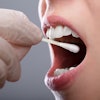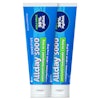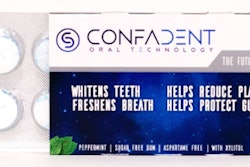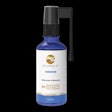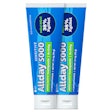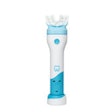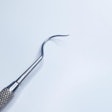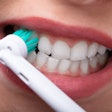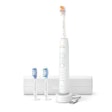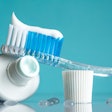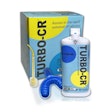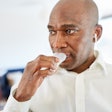
There is limited evidence to show that xylitol is effective in preventing dental caries in children and adults, a new research review published in the Cochrane Library concluded. But a dental professor asserts that xylitol has many valuable properties that inhibit caries development.
Because xylitol has been touted as a way to prevent caries, researchers at the University of Manchester in the U.K. sought to examine the available evidence to determine its effectiveness and safety.
The reviewers evaluated 10 studies involving nearly 6,000 participants from 1946 to 2014 and compared xylitol-containing products, such as toothpaste, syrup, lozenges, candy, and tablets with control products. They found there is little high-quality evidence that xylitol is beneficial in the fight against caries, which affects about 90% of children and most adults worldwide (Cochrane Database of Systematic Reviews, March 26, 2015, Issue 3).
"The evidence we identified did not allow us to make any robust conclusions about the effects of xylitol, and we were unable to prove any benefit in the natural sweetener for preventing tooth decay," lead researcher Philip Riley, MPH, from the University of Manchester School of Dentistry, said in a statement.
 Douglas A. Young, DDS, EdD, MBA, professor, Department of Dental Practice, University of the Pacific Arthur A. Dugoni School of Dentistry.
Douglas A. Young, DDS, EdD, MBA, professor, Department of Dental Practice, University of the Pacific Arthur A. Dugoni School of Dentistry.But in an independent commentary on the study, Douglas A. Young, DDS, EdD, MBA, a professor in the department of dental practice at the University of the Pacific Arthur A. Dugoni School of Dentistry in San Francisco, asserts that xylitol has many valuable properties that inhibit caries development, adding that he would still recommend it to high-risk patients.
The Cochrane review doesn't say that xylitol doesn't work, just that there's a lack of high level of evidence that it prevents caries on its own, he noted.
Dr. Young pointed out that caries is a multifactorial disease.
"That's why we do a caries risk assessment: to find out how many risk factors are out of balance so we can correct those," he told DrBicuspid.com. "It's either a combination of biofilm and chemistry, whether it's calcium phosphate fluoride or pH that's out of balance. We have to measure all those risk factors and treat them."
Dr. Young compared caries treatment to heart disease.
"If a physician focused on only one risk factor and the patient has five, it's not surprising that you don't get a robust effect," he explained. "There's no single magic bullet with caries disease."
Prior xylitol studies
The Cochrane review echoes a 2013 study that found daily use of xylitol lozenges did not result in a statistically or clinically significant reduction in caries among adults with an elevated risk of developing caries (Journal of the American Dental Association [JADA], January 2013, Vol. 144:1, pp. 21-30).
However, in a 2011 ADA report on nonfluoride caries-preventive agents, a panel of dental experts recommended that practitioners advise adults and parents of healthy children older than 5 years and at high risk of caries to use sucrose-free chewing gum containing either xylitol only or polyol combinations after meals. The report also suggested using xylitol lozenges or hard candy after meals for children older than 5 years (JADA, September 2011, Vol. 142:9, pp. 1065-1071).
The ADA noted that the 2011 study is just one recent study on the topic that provides expert opinion, and it does not represent the ADA’s position. The ADA's Council on Scientific Affairs (CSA) position remains unchanged based on the Cochrane Collaboration data, the group said.
"To date, there have not been sufficient clinical studies to demonstrate that xylitol has an active anti-caries role like fluoride does," the ADA said in an email. "CSA believes that xylitol, like the other sugar alcohols (e.g. sorbitol, mannitol) doesn’t promote cavities because plaque bacteria can’t metabolize it very well, so no significant amount of plaque acids are produced."Controversial substance
Xylitol is found in many fruits and in other plants. It is a 5-carbon sugar alcohol of crystalline structure, equally as sweet as normal sugar (sucrose) that has other properties thought to help prevent caries, such as increasing saliva production and reducing the growth of carious oral bacteria so that less acid is produced.
Dr. Young listed xylitol's proposed caries-fighting qualities; mainly, that it is a naturally occurring sugar that is not fermentable by caries-causing bacteria, so it can't be used to make the acid that demineralizes teeth.
“There's no single magic bullet with caries disease.”
"There is some evidence that xylitol affects the attachment of bacteria to teeth, so that is another mechanism that people are looking into," he said.
More important, xylitol is also low-calorie, Dr. Young noted.
"When you compare it to table sugar or corn syrup, the next logical question is: Does xylitol have advantages over those substances? And the answer is yes, of course, because it's not fermentable," he said.
In the U.S., xylitol is incorporated into many public and private preventive dental programs based on its recommendation in several clinical guidelines, for both adults and children. However, its use is not mentioned at all in U.K. guidelines on caries prevention. Although xylitol studies first originated in Europe, European researchers and clinicians have tended to hesitate recommending the use of xylitol for caries prevention, according to the authors of the Cochrane review.
Xylitol has been included in various products, including chewing gum, syrup, lozenges, sprays, mouthwashes, gels, toothpaste, candies, and varnishes. Although xylitol may have some anticaries effect on the bacteria responsible for caries, Streptococcus mutans, its effect in the long term is unclear because S. mutans becomes resistant to xylitol in habitual users, according to the authors.
Costa Rican studies
The researchers of the review found low-quality evidence that levels of tooth decay were 13% lower in those who used a fluoride toothpaste containing xylitol for three years compared with those who used a fluoride-only toothpaste in two studies of more than 4,200 children in Costa Rica.
The Cochrane authors also evaluated another study of almost 100 infants and compared those who took xylitol syrup (8 grams per day) with those who took low-dose xylitol syrup (2.67 grams per day) for one year. While they found that the higher-dose xylitol syrup group had a statistically significant reduction (58%) in the mean number of carious primary teeth, they noted that the evidence was low-quality and included a small number of participants.
For other products containing xylitol -- such as xylitol syrup, lozenges, and tablets -- the researchers found little or no evidence of any benefit.
One study that compared 669 participants who used xylitol lozenges with nonxylitol lozenges for 33 months found no difference in caries increments.
A study compared 252 children who used xylitol candy with control (sorbitol) candy over 36 months. But the Cochrane reviewers judged the data unusable and biased because the authors combined primary and permanent teeth to report the mean number of carious teeth, instead of using a mean increment and standard deviation for either primary or permanent teeth.
Another study of 200 children that compared those who used xylitol lozenges with nonxylitol lozenges for 24 months also found no difference in caries increments.
In addition, the Cochrane review found that many of the studies did not sufficiently report xylitol's side effects, which can include bloating, diarrhea, and laxative effects.
"We expected all studies to report adverse effects as an outcome," Riley stated in a press release. "Sugar-free gums, sweets, mints, and other products are well-known for their gastrointestinal effects, and these should be clearly reported in future studies."
Finally, Dr. Young added that xylitol can help stem the growing problem of childhood obesity.
"It's not a bad idea to substitute snacks with a low-caloric, naturally occurring sugar," he noted. "So there are many reasons why you don't want to throw xylitol out with the bathwater."
